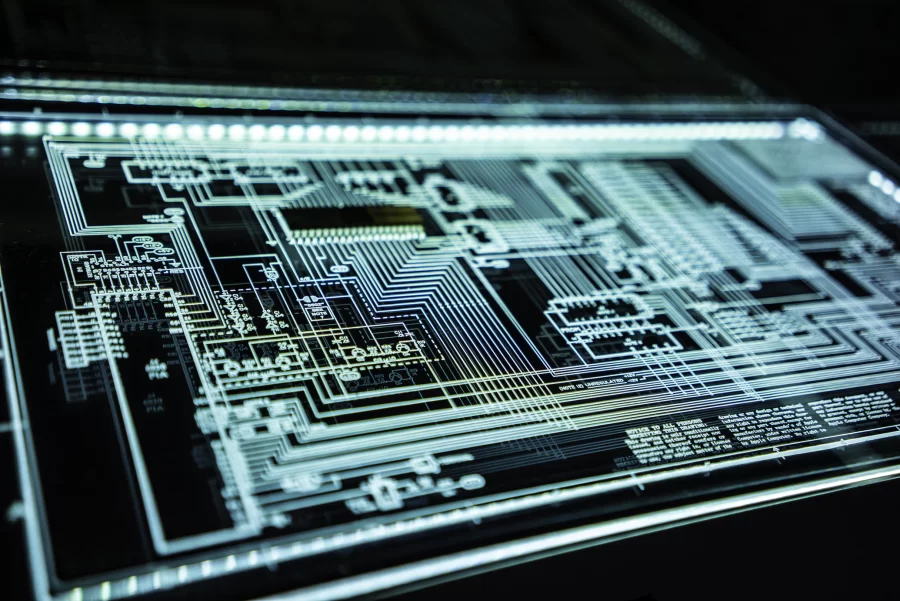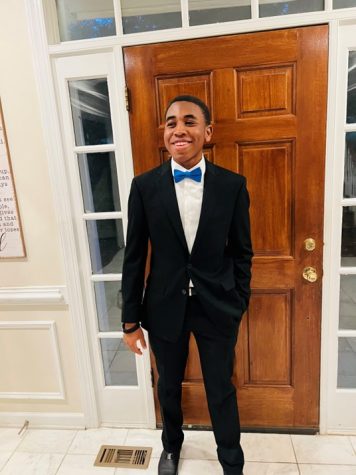Your palms are sweating, your breath is getting heavier, a tempting smell floods your nose, your brain accelerates into an endless pit, and suddenly everything clicks. The feelings just described are those of a CyberPatriot member in a moment of desperation.
CyberPatriot is a National Youth Education Program designed by the Air & Space Forces Association to direct students toward careers in cybersecurity or other STEM fields critical to our nation’s future. The Air Force Association (AFA) is a non-profit, independent organization that promotes and supports the United States Air Force and its mission. The organization was founded in 1946 by a group of military leaders and aviation enthusiasts, and it has since grown to become the largest independent organization representing the Air Force community.
At the heart of the program is the CyberPatriot competition. Team captain Andrew Neibur describes it as where “The Air Force gives [competitors] a bunch of fake hacked computers and [they] have to ‘unhack’ them and make sure the company can run its service.” These faked hacked computers are images you run on your virtual machine. (It is akin to a Lego house within a real house.) The AFA uses a fake company to ask competitors for help in these images. The fake companies’ computers are tailored with several problems, such as viruses, unwarranted apps & users, improper settings, unsecured search engines, etc. In addition, the image usually comes with two Forensic Questions, which can or cannot be related to the pseudo-company and are designed to get students to utilize various tools and knowledge to find the answer. Some examples of these questions include:
- What user accounts have been created on the system, and who has used them?
- What programs have been executed on the system, and when were they run?
- What network connections have been established, and what data has been transmitted?
- What files have been accessed, modified, or deleted, and by whom?
- What system settings have been changed, and when were they modified?
- There was a major DDOS hack in Bolivia in 2017. What software was used?
Sometimes hints will be provided with the question.
The competition is 6 hours and is scheduled by competing schools. There are four major groups for the first rounds of the tournament: Windows 10, Windows Servers, Cisco, and Unix.
Windows 10 is a desktop operating system widely used in personal computers. Windows 10 has a graphical user interface (GUI) that makes it easy to use for most people. In CyberPatriot, students are often asked to perform tasks such as configuring firewalls, installing updates, and setting up user accounts in Windows 10.
Windows Servers is a server operating system designed for businesses and organizations. It is used to manage networks, store files, and host applications. For example, in CyberPatriot, students may be asked to configure Active Directory, manage group policies, and set up DNS servers in Windows Server.
Cisco is a server operating system that is designed for businesses and organizations. It is used to manage networks, store files, and host applications. For example, in CyberPatriot, students may be asked to configure Active Directory, manage group policies, and set up DNS servers in Windows Server.
Unix is a server operating system that is designed for businesses and organizations. It is used to manage networks, store files, and host applications. For example, in CyberPatriot, students may be asked to configure Active Directory, manage group policies, and set up DNS servers in Windows Server.
The tournament has an initial four rounds in which all teams may participate. Based on a team’s result from round two, they will be placed within the Platinum, Gold, or Silver tier. From there, the elimination begins in round 3. Only 25% of teams from each tier advance, including State Wild Cards. A State Wild Card is a team who placed first in their state. So if My Kaisen Academia in California placed 120th nationally but placed first within their state, they still advance to the semifinals.
Part 2 of the series, featuring GC’s very own CyberPatriot team, is coming next week!


